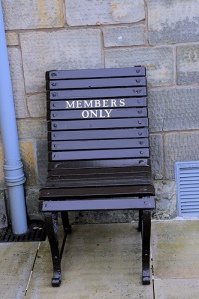Are you a member of a church? If you live in the Pacific Northwest, chances are the answer is no.
 For a long time, church membership has been defined by certain religious practices and traditional forms of commitment. Baptism, confirmation, profession of adherence to orthodoxy, pledging, filling out a tome-like parish register, participation in all that the church has to offer, attending regularly, and/or conforming to various spoken and unspoken behavioral norms.
For a long time, church membership has been defined by certain religious practices and traditional forms of commitment. Baptism, confirmation, profession of adherence to orthodoxy, pledging, filling out a tome-like parish register, participation in all that the church has to offer, attending regularly, and/or conforming to various spoken and unspoken behavioral norms.
Any of these traditional membership constructs sound familiar? Many of them are certainly familiar, well-loved, well–lived practices of many participants in St. David’s worshipping community.
However, our church is much bigger than our Sunday morning worshipping community, and many people who gather during the week consider St. David’s to be “their” church in the same way that those who are only there on Sundays consider it to be “our” church. What if the “our” of “our church” includes everyone for whom our building is a spiritual home, that is, a place where their spirit is fed?
St. Paul said that we are all members of one body: some teachers, some prophets, some healers, some givers, some leaders. What if the body of which we are all members is our extended community, a community where some teach, some sculpt, some pray, some cook, some play ukulele, some play piano, some sing, some loan tools, and so on? In this community of St. David–which springs forth from the creative, re-creative, and generative act of gathering around a common table to feast and pray on Sunday mornings–all are members.
In this community of St. David, all are members who hope and work for their neighbors’ best interests and dreams.
What makes you a member of a church? What makes you a member of the community of St. David?